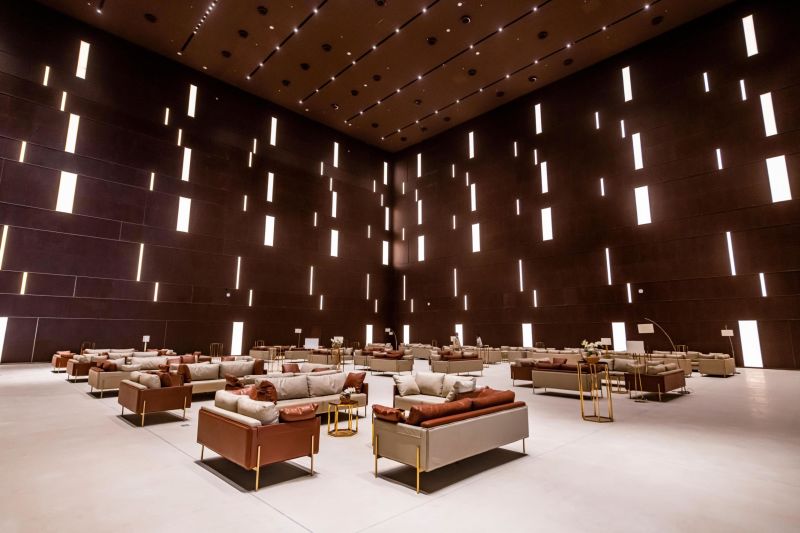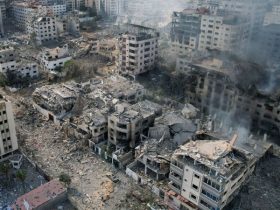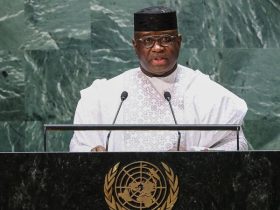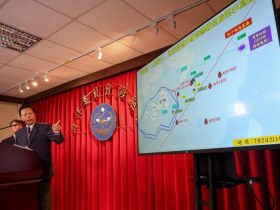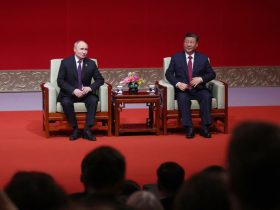To find one of the most iconic attractions in Saudi Arabia, don’t look for the building itself – look for the people with selfie sticks and ring lights.
Maraya is the largest mirror-covered building in the world, and at certain times of day the structure seems to evaporate into the surrounding desert.
The building – whose name means “mirror” or “reflecting” in Arabic – is a 500-seat concert hall, community center, and event space that has hosted performances from artists like Alicia Keys, Andrea Bocelli, Enrique Iglesias and John Legend.
But it’s also a work of art in its own right.
Set against the dramatic desert landscape in AlUla, just 14 miles from the epic architectural site at Hegra, Maraya was a joint collaboration between Italian design firm Giò Forma Studio and Black Engineering.
He continues: “We had the fortune of visiting the site and were profoundly touched by the natural and cultural landscape, so when we submitted our design, the first thing we wrote was ‘Nothing visible should be built here, so if we really have to, it should be a silent mirror cube.’”
The result, which took six months from concept to delivery and a mere 76 days of construction, was unveiled in 2019.
Site-specific challenges
Putting large amounts of glass in the middle of a scorching desert might seem like a recipe for blinding vision.
Boje and his team set out to find materials that would enhance the view of the landscape without exacerbating the sunny, hot conditions.
The first solution was a new kind of glass – made with copper.
Giò Forma Studio worked with US-based company Guardian Glass to create Guardian UltraMirror, a custom cladding product that was made to take Saudi Arabia’s warm, sunny climate into account.
In total, there are 9,740 panels cladding the building.
“Ingenuity and perseverance paid off well for Guardian Glass as we had to develop the solutions for Maraya Concert Hall’s unique needs,” Jasmin Hodzic, the company’s Asia and Middle East marketing director, said in a statement.
“The challenges posed by the terrain and time frame were in front of us, but we proceeded,” she added.
Intense heat can cause glass to oxidize, so the team developed a special coating for the Maraya glass that would be able to resist sandstorms, huge temperature fluctuations and other day-to-day weather challenges that can happen in the desert.
“Subtle curvature on the façade means that, from a distance, the building looks like a shimmering mirage of the surrounding panorama – but as visitors move closer, they see a perfect reflection of themselves.”
Art in the desert
Although Maraya was always intended to be in AlUla’s palm-strewn Ashar Valley, the exact location was selected in a way the architect calls “analog” – by simply taking large mirrors out into the expanse of sand and deciding which spot would be best.
The biggest challenge was having to create in a pure and untouched territory of unimaginable landscapes which is also being developed and discovered from a cultural point of view, and is therefore still developing its identity and design language,” says Boje.
So what is that design language Boje refers to?
In addition to Maraya, there is a veritable flood of art hot spots springing up in and around the historic area, featuring some of the most prestigious names in the cultural world.
French art book publisher Assouline published a series of titles showcasing Saudi archaeology and architecture. Visual art exhibitor DesertX has set up in AlUla twice, bringing artists from around the globe to create site-specific works.
That’s not all. Earlier this year, Le Monde reported that “starchitects” Renzo Piano and Richard Rogers were signing a deal to consult on building an outpost of Paris’ famed Centre Pompidou in AlUla, under the tentative name Perspective Galleries.
Going deeper
While some visitors might be satisfied with simply taking photos of Maraya and all its glimmering angles, they would be remiss not to head inside the building as well.
In addition to its musical performances, Maraya plays host to art shows, most recently Saudi Arabia’s first-ever exhibition of Andy Warhol, the legendary American artist who drew inspiration from pop culture and advertising.
Another major draw is Maraya’s restaurant, Maraya Social, perched on the rooftop with uninterrupted views of the desert.
Run by British chef Jason Atherton, who won a Michelin star for his London restaurant Pollen Street Social, the aesthetic is Europe-meets-Middle-East, all designed mezze style for sharing.
Don’t miss the excellent desserts, namely the banana-and-date pudding, which, considering you can practically touch AlUla’s many date farms from the building is about as local a dish as it gets.
Alcohol is banned in Saudi Arabia, so many restaurants and nightlife spots – Maraya Social among them – have put care into creating fun, creative craft mocktail menus.
The closest hotel to Maraya is the sprawling Banyan Tree resort.
Inspired by Bedouin culture, the hotel has suites with outdoor sections underneath swooping modern tents, plus outdoor fire pits, private swimming pools, and stargazing areas.
Some guests opt to walk the two kilometers across the valley, but the hotel also provides cars to ferry them between the two spots.
Still, whether you arrive by foot or by car, the best way to see Maraya is to come more than once. From streaky pink sunset light to twinkly dawns, each time of day creates a totally different experience.

